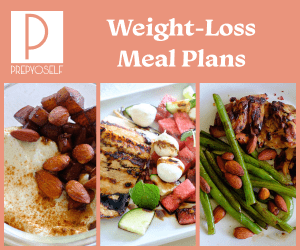
Heart disease is known as the “silent” killer and people don’t know they are at risk until they experience signs or symptoms of heart failure or heart attacks. Certain habits over time can increase the risk for heart disease and we don’t even know it.
It is well known that foods with high amounts of salt, sugar, saturated fat, and refined carbs raise your risk for heart disease. Intaking high amounts of saturated fat can lead to high levels of cholesterol, consuming too much sodium (the main portion of salt) can increase high blood pressure, and sugar and refined carbs can lead to weight gain and obesity. All these things contribute to a higher risk of heart disease. It is easy to identify what foods to avoid and try to limit them, but here are common habits that most people do that contribute to the risk of heart that can easily be changed and avoided.
Portion Control
We tend to overload our plates. How much we eat is just as important as what we eat. Overeating can lead to unwanted calories which could lead to weight gain and obesity. Individuals who are obese require more blood to supply oxygen and nutrients which causes an increase in blood pressure to move the blood around. You can avoid overeating by using small plates or a small bowl to help control your portion size. Tracking servings when you eat is also recommended. Use measuring cups or spoons to portion out your food. This will be helpful until you can learn to eyeball the correct portions.
Unhealthy Snacking
When we are hungry, we might have the tendency to snack on high-calorie foods such as meat and cheese, or sugary snacks. These items are full of saturated fat, high sodium, and added sugar. Instead of eating those snacks, it would be better to get good sources of vegetables and fruits. They are low in calories and rich in dietary fiber which will keep you full longer. They are also full of antioxidants and anti-inflammatory properties that can combat chronic inflammation that contributes to heart disease.
Deli Sandwiches
Many consume sandwiches every day for lunch because it is budget-friendly and convenient. However, most deli meats are high in sodium. The portion size for one meal alone can contribute to most of your daily allowance for sodium in one sitting. Excess sodium increases blood pressure because it holds excess fluid in the body which creates an added burden to the heart. Instead of deli meats, swap it out with shredded rotisserie chicken, a hard-boiled egg salad with avocado. Include a spread of hummus and load up the sandwich with roasted or fresh veggies.
Fruit Juice
Some people also consume 100 percent fruit juice to replace their soda or other sugary drinks as a healthier option, however, the portion size for many bottled fruit juice may be too large which could double the calories and sugar you need in one sitting. It would be important to read the label to know how many servings are in a bottle. It is also better to consume fruit juices that did not filter the skin because you would be missing out on the fiber that can help with normalizing elevated blood lipids which is a risk factor for heart disease.
Frozen Dinners
Frozen dinners may also be quick and convenient options for busy lifestyles. Even those that are labeled low fat and low carb may appear as if they are a healthier choice. However, these servings may contain high amounts of sodium. We always recommend cooking from scratch and batch cook meals so that you can freeze them and save them for later use.
Condiments
It’s also the little things that add up such as condiments and coffee creamer. Although the serving size for these items may appear small, many of us use them throughout the day in all of our meals. Many of these condiments can pack a large amount of sodium and sugar in a small serving size.
Unbalanced Meals and Last-Minute Meals
Last but not least, adequate and appropriate nutrition is required for all cells to function optimally and this includes the cells in the immune system which are essential in combating the complications of heart disease. Many stick to foods that they are familiar with and do not get enough variety, let alone enough vegetables and fruit which have essential vitamins and minerals that support the immune system. Incorporating foods with antioxidants can help protect molecules from oxidative stress.
Eating foods with anti-inflammatory properties in your diet helps boost your immunity system and fight disease and help you reduce your risk of illness. Unbalanced meals usually result from last-minute food decisions. Therefore, planning your meals in advance and knowing what you will eat during the week will help ensure that you are incorporating plenty of nutrient-rich foods such as fruits, veggies, whole grains, lean poultry, and fish. It will also help you limit foods with saturated fats, trans fats, and excess sodium and sugar.
If you need help planning your meals in advance, Sign up for our Free Trial and get access to weekly meal plans.
You can also try some of our heart-healthy recipes:


